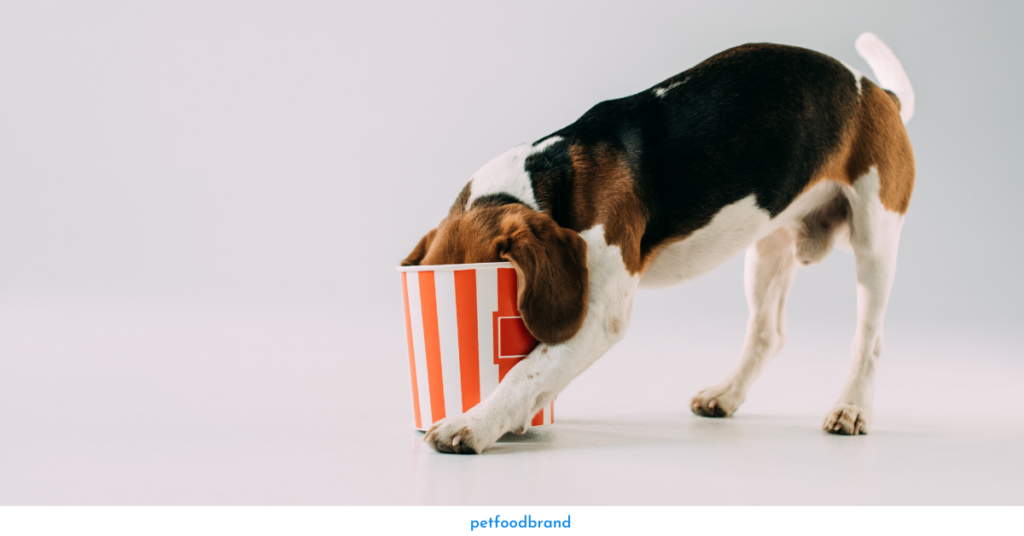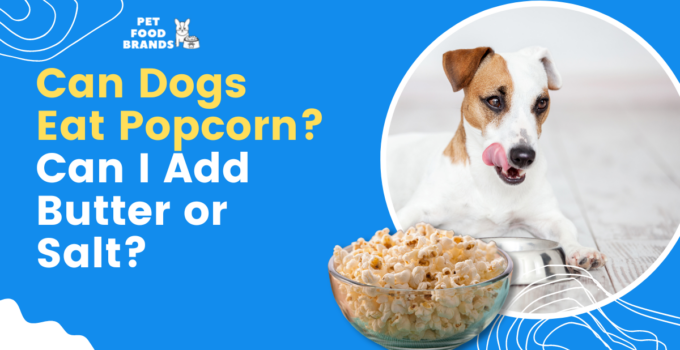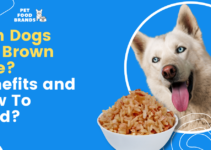Yes, dogs can eat air-popped plain, unsalted, and unbuttered popcorn. Plain popcorn is a healthy snack that contains plenty of fiber and protein. It also has iron and B vitamins, which will provide your dog with adequate nutrition.
Feeding popcorn with butter or other toppings is not recommended for dogs, even if it’s in the form of occasional small snacks.
A cup of air-popped popcorn contains 30 calories, 0.265 g water, 0.07 g sugar, 1.03 g protein, and 0.362 g fat.
Health benefits
- Popcorn is a healthy grain that contains many vitamins. It can help to produce energy, promote cell growth, and regulate hormones.
- Popcorn also contains trace minerals, such as iron and copper that help with the body’s function on a cellular level. They maintain health & skin and make for a shiny coat. It helps to regulate the immune and nervous systems too.
- The best reason your dog needs this snack every now and then is to keep its digestive system running smoothly. Popcorn has a lot of dietary fiber, is really low in calories, and contains powerful polyphenol antioxidants.
Risks
- Salt is bad for your dog! Popcorn contains sodium, which can lead to dehydration, salt toxicity, or ion poisoning. If your pup ingests these substances, it will need to see a vet as soon as possible.
- The fats and oils in popcorn can increase your dog’s risk of obesity. Fats and oils can also lead to gastrointestinal issues like vomiting and diarrhea.
- Kettle corn or caramel corn has all sorts of added sugars that are bad for dogs with diabetes or weight problems.
- Peanut butter, together with the added artificial sweetener Xylitol is hazardous for dogs – it can cause an upset stomach or even liver failure.
- Dogs can easily be hurt by unpopped popcorn kernels. They are difficult to digest and can cause blockages or difficulties while they travel through the digestive system.
- Dog safety is also a big concern. If bits of popcorn get stuck between your dog’s teeth or gums, then that can cause discomfort.
- If you like to toss pieces here and there as a reward, it can actually pose a choking hazard. For example, if they’re eager and catch it in their mouth before swallowing, the popcorn may not break up or fit through easily, thus leading to serious problems.
How to serve popcorn to a dog?

You might be tempted to buy pre-seasoned popcorn for your dog, but as long as you avoid serving anything with butter or other add-on toppings, air-popped and unseasoned popcorn is a safe choice.
Following are 3 methods to make healthy popcorns for your dog:
- Air-Popping is super simple. You can use your stovetop, a popcorn machine, or your microwave to cook the kernels. After popping your popcorn, be sure to remove any unpopped kernels as they could present a choking hazard.
- Simply line a baking sheet with parchment and spread the popcorn. Put some reduced-fat cheese on top, as well as crumbled chicken bits. Put it in the oven and wait for it to melt— later you can sit back and enjoy this delicious treat yourself as well.
- To make the best homemade microwave popcorn for your dog, combine half a cup of kernels with 1 cup of peanut butter, as well as a teaspoon of extra virgin olive oil. Form small balls and put them on wax/baking paper to avoid any messes.
Why do dogs like popcorn?
- Dogs have an excellent sense of smell and can detect a small scent from miles away. Popcorn contains oils and fats that are emitted as they pop. These are usually pleasant scents to a dog and can draw them in.
- Dogs like popcorn because it tastes good.
- They like popcorn because they are used to this food as a reward.
Are dogs allergic to popcorn?
Not all dogs are allergic to popcorn, but it’s a known allergen for dogs. Symptoms one should watch out for include: gas, diarrhea, vomiting, and stomach upset. If your dog shows signs of allergies or intolerance to popcorn, stop giving it the popcorn and contact a vet.

Ankita is a passionate pet lover and head of content at Pet Food Brands. With her extensive knowledge and research, she provides pet owners with top-quality information on dog food and nutrition. Her dedication to improving the lives of dogs makes her a leading voice in the industry.




